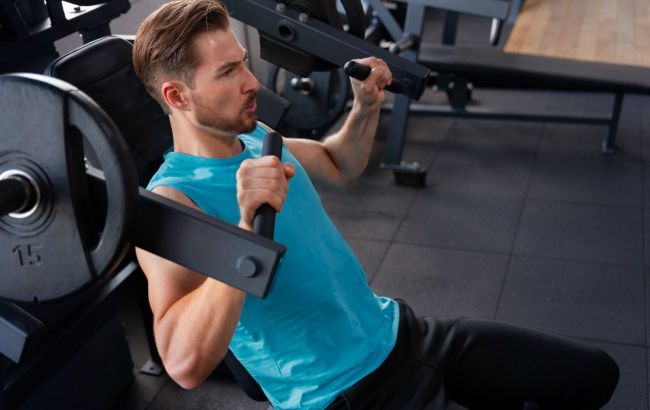One habit you should break to build muscle mass
 The mistake that prevents you from building muscle mass has been named (photo: Freepik)
The mistake that prevents you from building muscle mass has been named (photo: Freepik)
To build muscle mass with regular gym workouts, you should avoid a common mistake, states Eating well. We are talking about refusing to eat after a workout.
Why post-workout nutrition is so important
After a workout, people usually go home, take a shower, and then go about their work, business, or family. Before you know it, hours have passed and all you've "eaten" is water.
Failure to eat after a workout is a common habit even for athletes. But if your goal is to increase muscle mass, you need to break this habit.
When you work out, your muscles create tiny micro-tears, and the more intense the workout, the more damage there is. This applies not only to strength training (i.e. weight lifting) but also to endurance training.
After a workout, your body begins the recovery process. That's when amino acids, which are the building blocks of protein, move around and work their magic to help repair muscle tissue and make it stronger.
However, this process only takes place if the body has these "building blocks" (aka amino acids) available. Research shows that muscles are most receptive to protein intake immediately after a workout, so post-gym nutrition is important.
How much protein should you consume
Consuming 20 to 40 grams of high-quality protein after training stimulates muscle protein synthesis and helps improve muscle mass. This amount provides approximately 10-12 grams of essential amino acids, which are key to muscle recovery and growth.
Protein is not the only nutrient your body needs after exercise, carbohydrates are needed to replenish glycogen stores.
Combining a high-quality protein source with carbohydrates is an effective strategy for improving strength and body composition. It also helps to repair and recharge muscles and energy stores, allowing them to grow and stay strong.
Other tips for building muscle
Pre-workout snack
Don't come to training on an empty stomach. Performing exercises on an empty stomach can limit your performance (both duration and intensity), resulting in an uneven workout.
It can also lead to muscle breakdown. Studies have shown that eating a carbohydrate snack about 30-60 minutes before your workout helps maintain energy levels, especially toward the end of your workout.
If you prefer to work out in the morning right after you get out of bed, find a quick source of carbs like a glass of 100% fruit juice, a banana, or a handful of dried fruit to get your body energized.
Prioritize sleep
During sleep, muscles grow. Lack of sleep not only makes you feel lethargic, but it can also disrupt muscle protein synthesis and increase muscle breakdown.
Studies show that poor sleep interferes with the production of growth hormone, which helps to grow and repair muscles. Lack of sleep also increases cortisol levels and causes inflammation, which further impairs muscle recovery and slows progress.
Eat enough calories
Post-workout carbs and protein are important, but consuming enough calories each day is also important. The more muscle you have, the more calories you burn at rest.
If your goal is to build even more muscle, you need to eat well. A calorie deficit can lead to muscle breakdown rather than growth, as the body cannot build without the right nutrients.
Protein importance
Unlike fat or carbohydrates, protein is not stored in the body, so it is important to ensure that you get enough of it throughout the day. You should consume between 0.25 and 0.40 grams of protein per kilogram of body weight every 3-4 hours to maximize muscle growth and recovery.
We also wrote about how long you need to run to burn a lot of calories and belly fat.
This material is for informational purposes only and should not be used for medical diagnosis or self-treatment. Our goal is to provide readers with accurate information about symptoms, causes, and methods of detecting diseases. RBС-Ukraine is not responsible for any diagnoses that readers may make based on materials from the resource. We do not recommend self-treatment and advise consulting a doctor in case of any health concerns.

